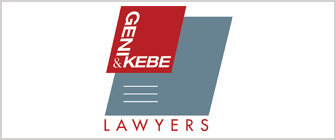Mouhamed Kebe of Geni & Kebe provides an introduction to the business environment in Mali
The legislative framework for financial and banking system
On regional level, Mali belongs to three major regional entities:
- The Economic Community of West African States (ECOWAS) is the regional group of the West African countries. The members of the ECOWAS are: Benin, Burkina Faso, Cape Verde, Cote d’Ivoire, Gambia, Ghana, Guinea, Guinea Bissau, Liberia, Mali, Niger, Nigeria, Senegal, Sierra Leone and Togo.
- The West African Economic and Monetary Union (WAEMU) is the regional entity of eight francophone countries of West Africa, namely Benin, Burkina Faso, Cote d’Ivoire, Guinea Bissau, Mali, Niger, Senegal and Togo.
These countries share the same currency, the same central bank (BCEAO) and the same business law.
- The Organisation for the Harmonisation of Business Law in Africa (OHADA) is a legal system of seventeen African states namely Benin, Burkina Faso, Cameroon, Central African Republic, Comoros, Republic of Congo, Republic Democratic of Congo, Cote d’Ivoire, Gabon, Guinea, Guinea Bissau, Equatorial Guinea, Mali, Niger, Senegal, Chad and Togo.
These countries share a common business law including commercial law, corporate, securities, debt recovery, insolvency, arbitration, accounting, transport of goods by road. They have the same common court of justice and arbitration.
On the national level, following are the financial laws:
- Law No. 10-013 of May 20 2010 relating to the regulation of decentralized financial systems;
- Decree No. 10-315 of June 3 2010 relating to the application of the law No. 10-013 of May 20 2010.
Issues and potential challenges for banks, financial institutions in Mali
The banking and financial sector in Mali is characterised by a large number of commercial banks with nearly 13 banks and two financial institutions (subsidiaries of French and Anglo-Saxon companies as well as some local or regional banks) and a banking rate estimated around 7% with a total assets of XOF2168 billion, which is 12, 5% of the total assets of all the banks in region. The banking activity is characterised by high interest rates and conservative lending process. Therefore, few firms have access to credit. In front of an internal economic recession marked by a decline of the GDP, the banking sector recorded a big increase in its assets. In truth, regardless of the crisis context, the Malian banking sector is growing structurally faster than the national economy that it is supposed to finance.
Microfinance institutions
The Malian government’s actions have contributed significantly to the development of the sector, such as the establishment of a National Consultative Group on Microfinance and the creation in 2002 of the "Banque Malienne de Solidarité (BMS)", responsible for the refinancing of local institutions of microfinance.
Mutual institutions dominate the sector. However, the sector endeavours more and more to diversify the nature of institutions and credit methodologies employed.
Since 1999, Mali's MFIs are grouped in the Professional Association of Microfinance Institutions of Mali (APIM / Mali) aiming to promote transparent and professional sector.
Stock exchange values
Mali has a national stock exchange antenna of the Regional Stock Market (BVRM) (Bourse Régionale des Valeurs Mobilières) which is a financial institution established by WAMU and has a community public service mission. The Malian government has so far not used the response capabilities in the BVRM for to raise money unlike other countries in the sub region; however, some very dynamic Malian companies have raised funds from the stock market. This is the case of Sema SA, BNDA, BHM etc., and some private sector actors, among others.
There are currently ongoing reforms within the institution to increase its weight and its role in financing the economies of WAEMU including opening a third compartment dedicated to small and medium companies; for companies with high growth potential and those looking for start-up capital; for the admission to trading on the BVRM new companies from the sectors of finance, retail, telecommunications and industry through privatization or exit of private equity funds.
The bond market
Mali has requested the West African financial market in the end of 2014, with an overall value of XOF40 billion ($77.7 million) with a rate of 6.25% for a period of five years. Since the beginning of 2014, the country has already mobilised nearly 103 billion XOF across three emissions of treasury bonds.
With this latest Malian loan, the global volume of bond loans made in the financial market of the West African Monetary Union will be increased to XOF967.670 billion ($1.88 billion), a real opportunity for investors affecting products of fixed rate. With average yields between 6% and 6.5%, it is a kitty of just over XOF58 billion of income just on interest rates.
Legal incentives for investment
According to the investment code of Mali dating from 2012, foreign investors enjoy the same privileges as the Malian investors. The right to transfer capital and income is guaranteed to individuals or legal persons who carry in Mali an investment financed by a contribution in currencies. In other words, foreigners who make investments or who are employed in a Malian company are entitled, subject to compliance with the regulations relating to foreign exchange, to transfer, in the currency sold at the time of constitution of such investments, dividends, proceeds of any kind of invested capital, the liquidation proceeds or realisation of their assets and wages.
Incentives granted to investors
The investor is guaranteed against any measures of nationalisation, expropriation or requisitioning of its business, except for a public purpose. If necessary, the investor will receive compensation in accordance with applicable laws and regulations on the subject.
Any company is free to hire and fire specialist expatriate employees for the proper functioning of the company, in accordance with the laws in force in the Republic of Mali.
Freedom of access to raw or semi-processed raw materials, produced throughout the national territory, is guaranteed. The agreements or practices distorting competition are punishable by law.
The investment code offers several advantages including tax exemptions of VAT and reductions in tax rates.
Partner
Geni & Kebe
Dakar



